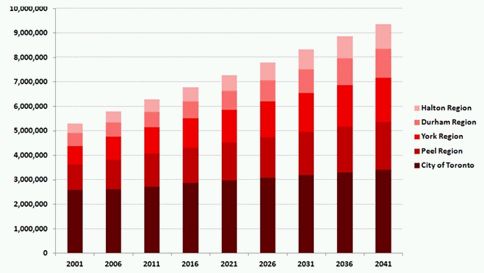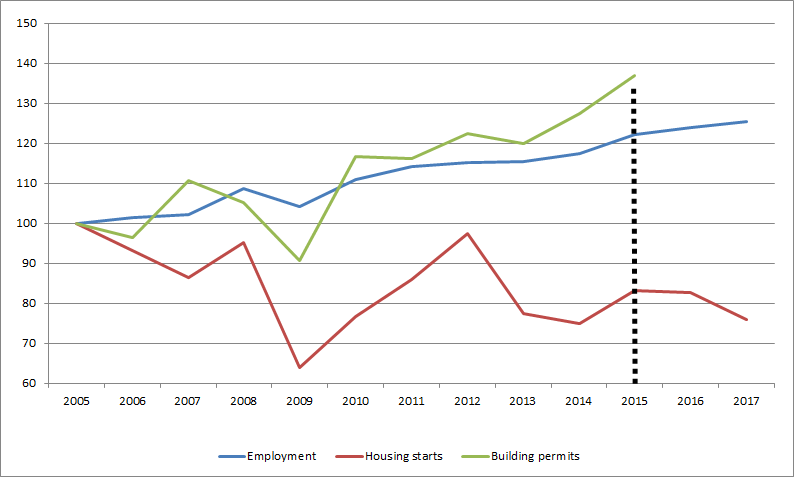Good story From today's WSJ
Can Housing Bubbles Be Stopped? Australia’s Tiny Apartments Say No
Regulators try again to curb the impact of foreign money on home prices
By
Rob Taylor and
Rachel Pannett
April 3, 2017 5:15 a.m. ET
New homes in the Sydney suburb of Putney Hill in January. The median house price in Sydney hit a record $858,000 last year. Photo: /Bloomberg News
SYDNEY—From Australia to Canada, authorities are learning a hard lesson in their efforts to curb the foreign money flooding their property markets: deterrents quickly lose their punch.
In recent years, regulators in several countries have raised taxes on residential real-estate purchases, required banks to demand bigger down payments and taxed empty homes—to little long-term avail.
Now they are trying again.
Australian regulators on Friday ordered banks to limit the flow of interest-only loans—a villain in the U.S. subprime mortgage crisis—to 30% of new loans from about 40% now and to restrict loans to people making small down payments. The country’s corporate regulator said on Monday it was investigating whether lenders and mortgage brokers are inappropriately promoting interest-only loans. New South Wales state, home to Sydney, is considering a further property-tax rise for foreigners.
The moves are an attempt to blunt a price rise that has resumed after
the last crackdown starting in late 2014.
House prices in Sydney and Melbourne, the nation’s two biggest cities, rose by about 19% and 16% in the year through Mar. 31, much of it in the last six months, according to an analysis by data company
CoreLogic released on Monday.
The median house price in Sydney hit $821,000 last year, according to Demographia, a U.S. think tank. It said the figure, equivalent to 12.2 times the average annual wage, made Sydney the world’s second most expensive city after Hong Kong on a house-price-to-income ratio.
Demand in Melbourne is driving up valuations of house land plots by $7,500 a week, said Giles Bray, a local mortgage broker. Developers are now building 300-square-foot apartments—roughly a third of the average new American unit—with 8-foot ceiling heights to pack in more units. In the past three years, foreigners have bought thousands of them sight unseen. “They are poorly built and lack light,” Mr. Bray said.
The gains are testing the limits of government measures aimed at preventing housing bubbles from developing in cities around the world.
The frothiness is driven by
ultralow interest rates at central banks that spur investors to hunt for returns in tangible assets. Chinese investors also are a big driver of the phenomenon.
The concern: foreign, speculative investors are making properties unaffordable for locals and adding economic risk because these buyers are more likely to flee in a downturn.
In 2010, when Australian prices last rose sharply, the Reserve Bank of Australia tightened policy to cool things off. But lately the central bank has been keeping rates at a record-low 1.5% to aid an economy that is still struggling to adjust at the end of a long mining boom.
Australia narrowly avoided a recession last year—defined as two straight negative quarters—as it rebounded in the three months through December from a surprise contraction in the third quarter. The central bank meets again on Tuesday and is widely expected to keep rates unchanged.
Before the 2007-2008 financial crisis, many policy makers thought asset bubbles couldn’t be detected in advance and that it was therefore better to clean up afterward rather than try to influence their growth. Now, regulators generally believe they need to take action as risks rise.
Raising the Roof
Home prices are soaring again in Australia's capital cities...
Residential property price index, change from a year earlier
...with two of them among the globe's least affordable...
World’s least-affordable places by house-price-to-income ratio*
...as China dominates foreign buying in at least one major market.
Foreign property buyers in New South Wales, share of value**
*As of 3Q 2016 **October 2016-January 2017. Figures don’t add up to 100 because of rounding. Sydney is the capital of New South Wales. Sources: Australian Bureau of Statistics (index); Demographia (ratio); Credit Suisse (foreign buyers)
Home prices are soaring again in Australia's capital cities...
Residential property price index, change from a year earlier
...with two of them among the globe's least affordable...
World’s least-affordable places by house-price-to-income ratio*
...as China dominates foreign buying in at least one major market.
Foreign property buyers in New South Wales, share of value**
*As of 3Q 2016 **October 2016-January 2017. Figures don’t add up to 100 because of rounding. Sydney is the capital of New South Wales. Sources: Australian Bureau of Statistics (index); Demographia (ratio); Credit Suisse (foreign buyers)
Some places that have been favorites for Chinese investors in recent years—including London, and, most recently, New York—are rolling out policies that discourage foreign purchasers.
Canada has
tightened housing-financing rules numerous times since mid-2008 to curb excesses. In Canada’s hottest market, Vancouver, British Columbia, the government last year introduced a new residential-property tax on outsiders and a separate vacancy tax on properties left unoccupied.
Vancouver’s latest efforts seem to be working. Web searches in China for Vancouver properties dropped 37% in December compared with a year ago, according to Juwai.com, an online real estate portal that targets Chinese home seekers.
But policy makers worry about whether cooling measures might just shift demand from one jurisdiction to another. Chinese buyer interest has been rising in the Seattle region since Vancouver’s tax-policy changes were introduced in August, brokers say.
Auckland overtook Toronto as the world’s “hottest” city for luxury real estate in 2015, partly because of New Zealand’s relatively
open-door policies to foreign investment, according to a Christie’s International Real Estate survey. And Melbourne’s recent tax on unoccupied apartments may spur new buyer calculations.
“The [Melbourne] tax may be enough to divert buyers back to Sydney or Auckland, with the risk of course these cities follow suit,” said Jarrod Kerr, a director at
Commonwealth Bank in Sydney.
Properties along the coastline in the Sydney suburb of Clovelly in 2015. Photo: Reuters
Policy makers and ratings firms also worry about a glut. In Australia, economists are looking at heat maps showing where cranes are clustered to predict which areas are at most risk of overheating.
Australia’s apartment boom, once primarily limited to central cities, is spreading to the suburbs. More than 100,000 apartments are under construction in the states of New South Wales and Victoria, roughly double the number five years ago.
Outsiders, mostly from China, are buying up a quarter of new supply in New South Wales and 16% in Victoria, according to
Credit Suisse . Australian apartments still look cheap compared with their counterparts in Chinese cities like Shanghai or Shenzhen, analysts say.
“It is clear foreigners have been able to settle on their Aussie properties more recently despite the numerous impediments of capital controls and the lack of lending by Aussie banks,” Credit Suisse analyst Hasan S. Tevfik said. “There is little evidence so far to suggest the flows have stopped.”
Far to the west of Sydney’s glittering harbor, construction cranes are rising up in the once-downtrodden suburb of Auburn, an emblem of Australia’s housing boom.
Citibank recently named the area as among those most danger of a supply glut, with rents already falling or stagnating in those places, a possible precursor to a fall.
“Inquiries are still strong, though perhaps not quite as hot as a year ago when I thought I’d need a ticket-line counter for people coming in,” said real-estate broker Themy Panagiotidis. “Look at the expensive cars around, the money is there.”











